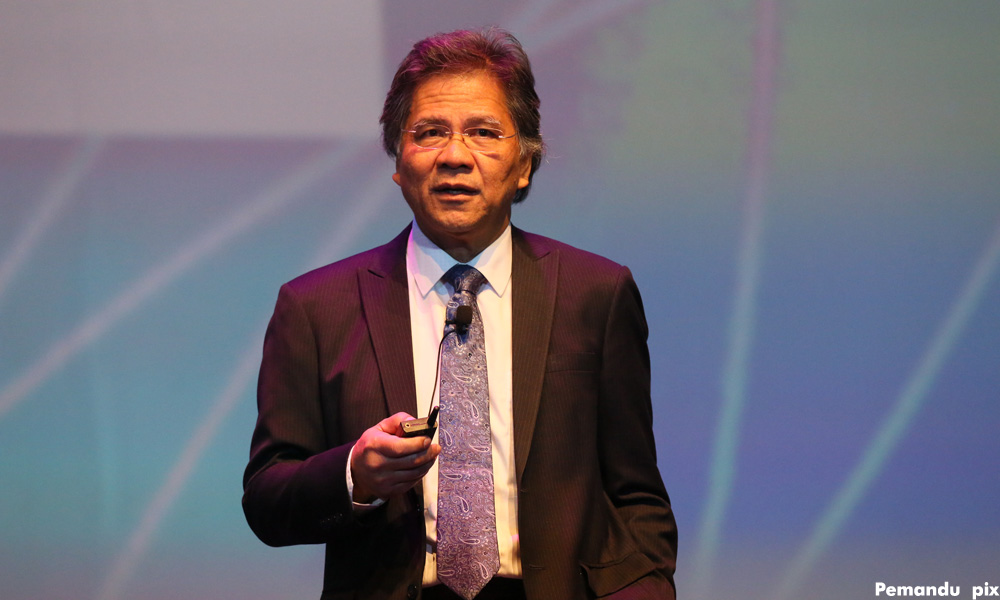Prime Minister Anwar Ibrahim should consider reviving a previous Umno Baru initiative under Najib Abdul Razak to set key performance indicators (KPIs) after 100 days in office.
Really and seriously, there is no need to reinvent the wheel - this was done, and done well, under the previous Performance Management and Delivery Unit (Pemandu) set up in 2009 under then prime minister Najib. Idris Jala was moved from Malaysia Airlines to head the unit, eventually becoming a minister.
This was one of the few things of worth that the Najib administration did - spoiled by his greed and stealth subsequently - and it gave a clear road map of transformation for both the government and the economy, for all its complexity, in easily understandable terms.
What was great about it was that it set quantifiable targets for both ministries and government departments, and unambiguous deadlines by which time the targets under the KPIs were to be met. Ministers and departments had their performances rated and audited independently.
It was no wishy-washy document which set things in general terms. For example, the target for economic growth was set at six percent per year for the period from 2010 to 2020. Developed status was to have been achieved by 2020, based on the per capita income as given by the World Bank.
It even went so far as to explain how the national income will be attained to achieve developed country status, breaking down the projected sources of income and how they will be generated.
It was very ambitious indeed. Nothing like it had ever been done before in Malaysia. No developing country anywhere in the world had done anything like that before, and not many developed countries.
The GTP and the ETP
Two programmes were set up involving all ministries and their departments and people working there were locked up in labs over several weeks to come up with what were eventually their own targets and measures by which they would assess the success or otherwise of the programmes.
The plan - under two prongs (the Government Transformation Programme or GTP and the Economic Transformation Programme or ETP) was launched with much fanfare (and just as much scepticism) in 2010.
The 264-page GTP can be downloaded here and the 570-page ETP Road Map here. They provide a detailed plan for action, backed up with starting figures and stated targets together with deadlines for fulfilling them. Those interested should download the programmes to see for themselves.

The two programmes addressed in detail many of the key areas of concern. For the GTP, there were plans to reduce crime, fight corruption, improve student outcomes, raise the living standards of low-income households, improve rural basic infrastructure, improve urban public transport and enhance accountability with ministerial KPIs.
For the ETP, the setting up of a target of six percent growth of the economy to achieve an income per capita of US$15,000 by 2020 involved identifying 12 so-called national key economic areas (NKEAs) to push growth forward.
These NKEAs were expected to make substantial contributions to Malaysia’s economic performance, and they would receive prioritised public investment and policy support. It was anticipated that the private sector will spearhead the efforts, financing 92 percent of the funds required.
The transformation programmes originated from a study by management consultants from McKinsey and Company, who had done similar work in the UK. Michael Barber, the former head of the UK's Prime Minister’s Delivery Unit under Tony Blair, was a partner at McKinsey.
Unfortunately, the good work that Pemandu was doing came under severe criticism, from both the ruling party and the opposition then. Elements within the ruling party were not happy with the pressure put on them to perform and the accountability that was required.
The opposition, on the other hand, had to debunk the one thing that the Najib government was doing right - setting the country on the right course towards the transformation of both the economy as well as the government to ensure a better life for all.

When Dr Mahathir Mohamad became prime minister for the second time in May 2018, one of the first things he did was to dismantle a number of government bodies. Unfortunately, this included Pemandu, a classic case of throwing the baby out with the bathwater.
Pemandu had a wealth of data and expertise on change management but was unceremoniously booted out. I could not even find the website for the old Pemandu.
Fortunately, not all is lost. Former Pemandu chief Idris now runs Pemandu Associates, which provides services - similar to what the old Pemandu did for the government - to over 25 countries across the world.
I am sure he can be tapped to provide similar services again for Malaysia, which will be inexpensive as much of the work had already been done before. Much of the staff can be recruited from the government and others seconded from the private sector as needed.
What will be required again, however, is a special monitoring unit to independently verify the progress of all the departments and ministries involved in the transformation process and to play a key coordinating role between departments and ministries. That will need a strong personality who has constant access to the prime minister.
That is key for accountability. For several years, Pemandu did exactly that, producing detailed reports of achievements and unachieved targets, as well as holding elaborate press briefings to explain the findings.
Compared to the benefits likely to flow to the government and the rakyat from such an effort, the costs are likely to be very low, and indeed should be kept low.
For Anwar, politically, it will be an acknowledgement of the previous value and contribution that the old Umno administration under Najib made to the development of the country.
That will score him some badly needed political points, and help achieve some unity for the government while doing something which will be of great value to the country and the people in the future. - Mkini
P GUNASEGARAM, a former editor at online and print news publications and head of equity research is an independent writer, analyst, and consultant.
The views expressed here are those of the author/contributor and do not necessarily represent the views of MMKtT.

No comments:
Post a Comment
Note: Only a member of this blog may post a comment.